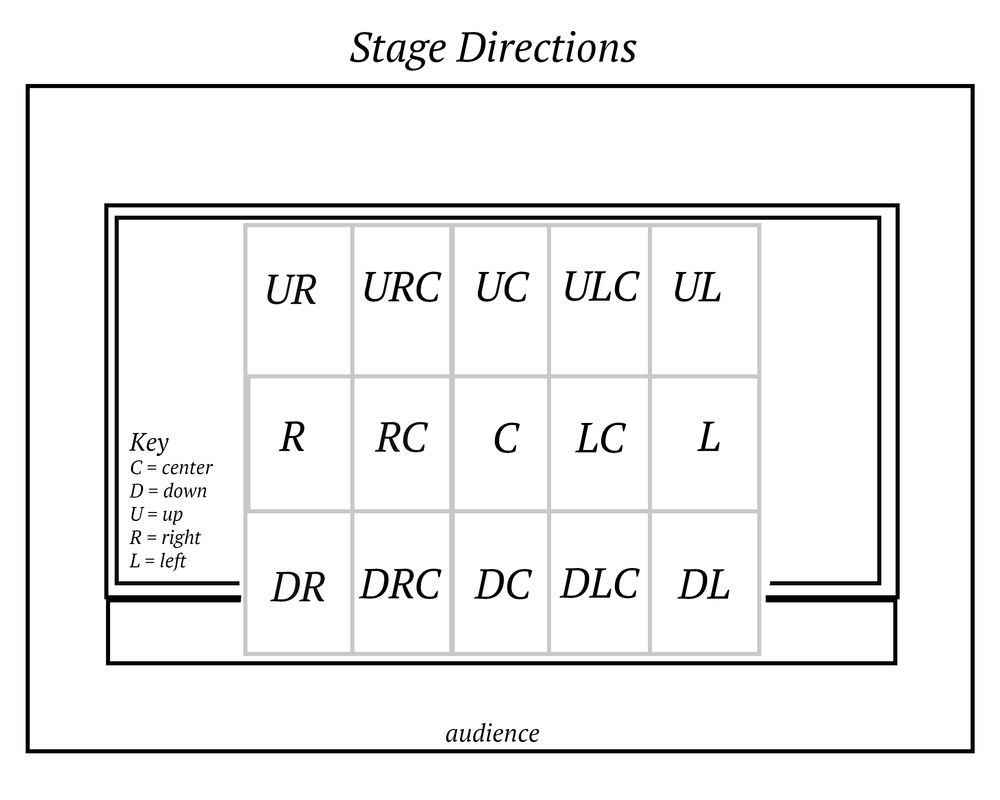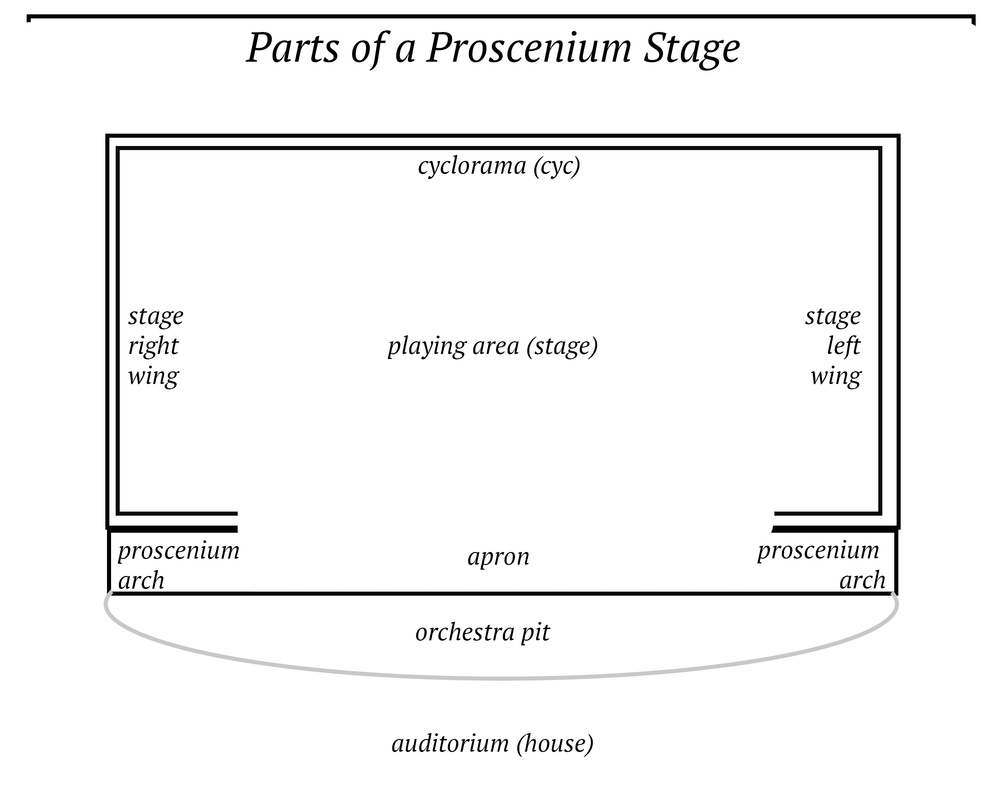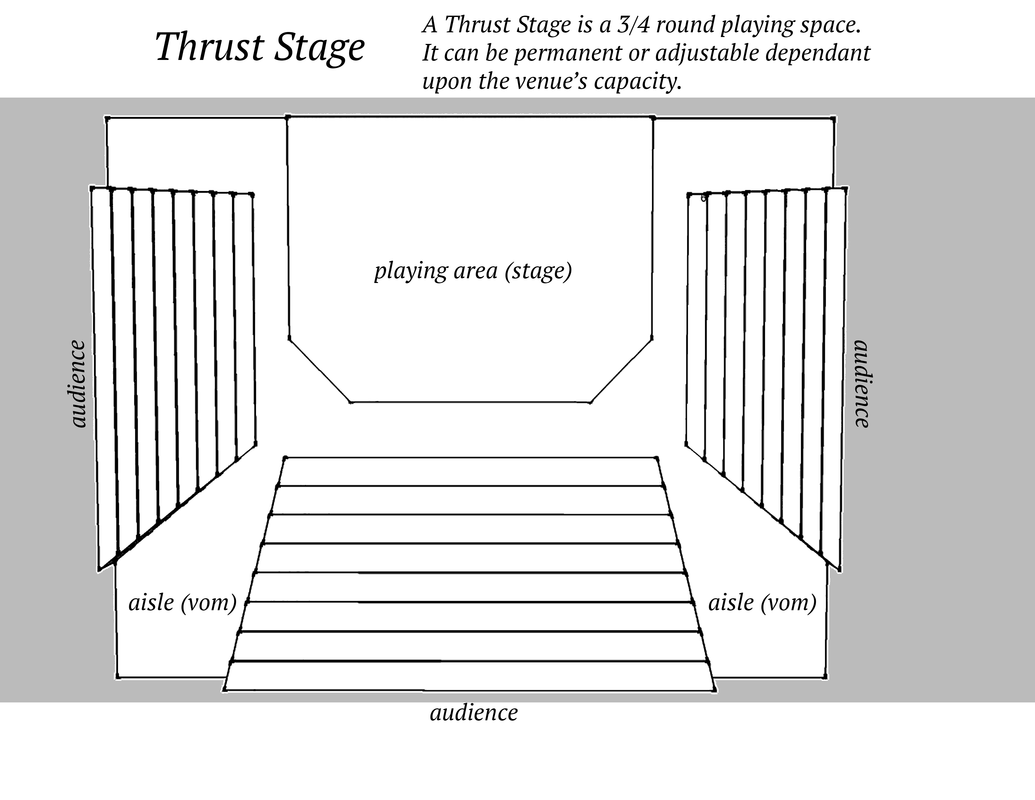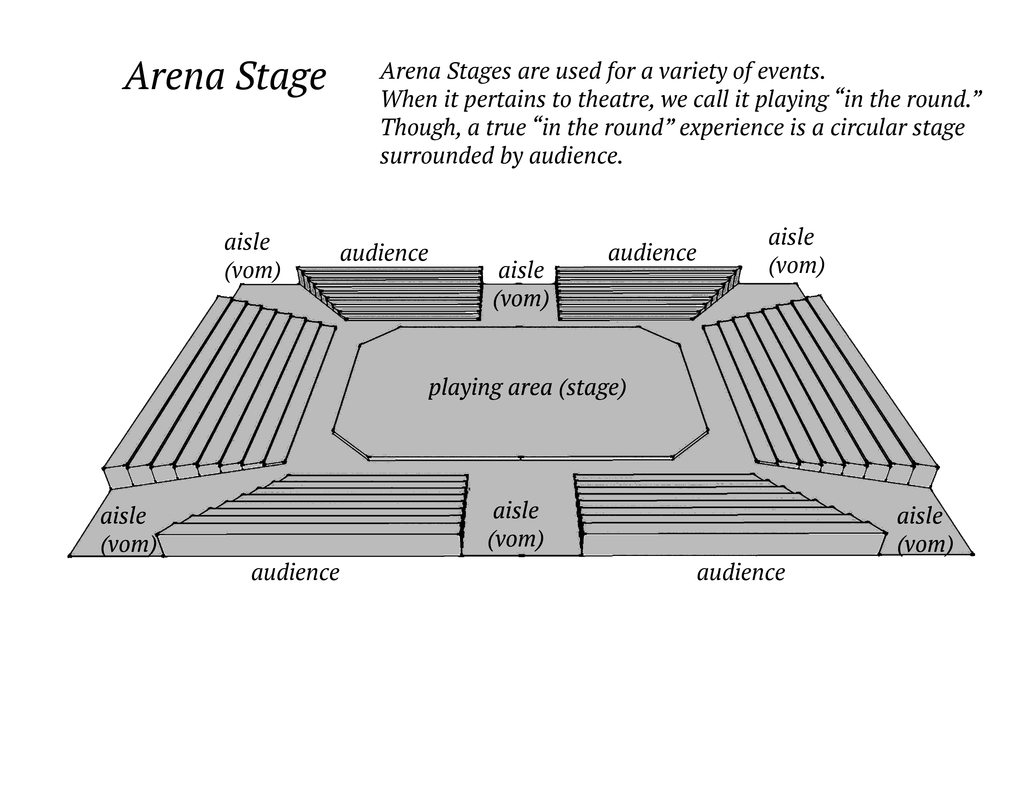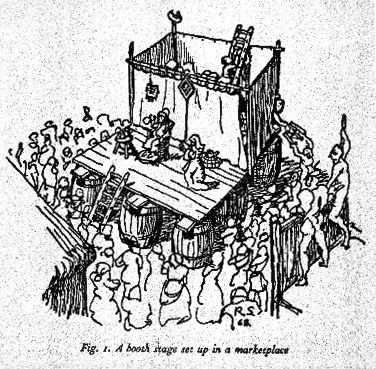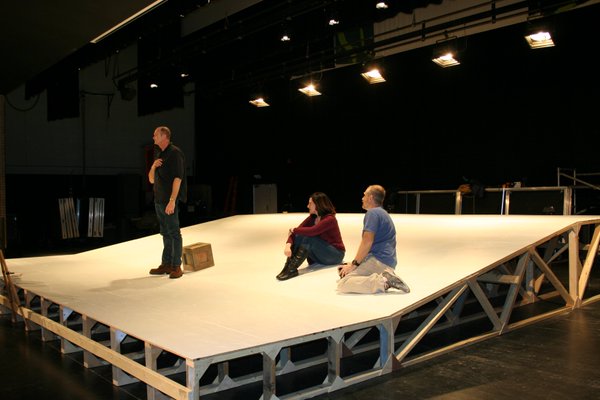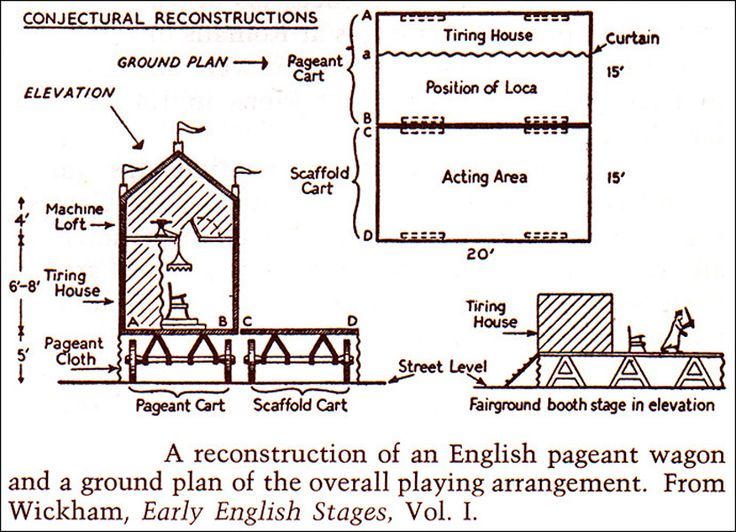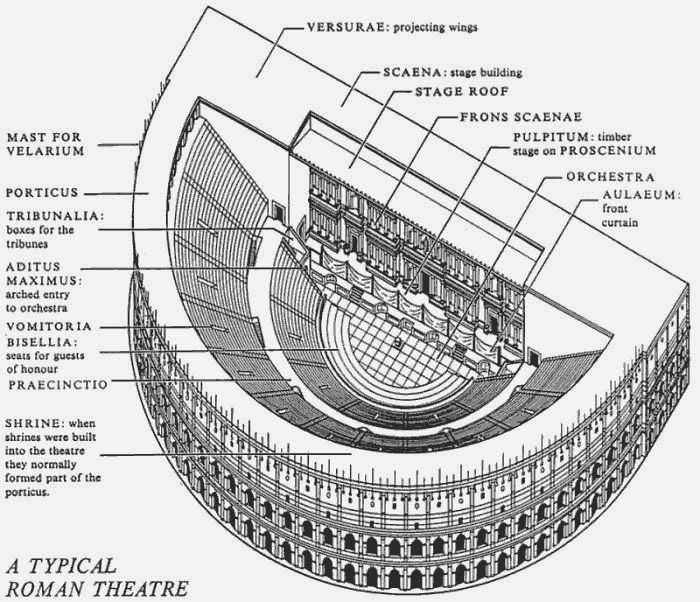Theatre Basics
Enduring Understanding:
In order to better understand the adventure on which you are about to embark, we have to go over some basics. First, it's not a typo, it's spelled t h e a t r e. Next, This unit is designed to introduce you to some concepts that maybe you know, and maybe you would like to know more about. The goal is to familiarize you with a few items that you will be using for the next four years in the program. Use this lesson as reference, guide, and tool for the rest of your time here.
Essential Questions:
What do you know about theatre now?
How does this thing called "theatre" work, do you think?
Is theatre something you would like to learn more about?
What are the aspects of theatre that are intriguing to you?
Essential Skills
1. You will learn the parts of the stage and where they came from historically.
2. You will learn how the basic jargon of the theatre works.
3. You will become familiar with the ins and outs of the physical space and how you as a thespian relate to it.
4. You will grow to understand what is meant by a "collaborative art."
Activities
Activity 1-
In groups you will define the space of a theatre, showing how stage directions lead an actor around the playing space to create interest and move a story.
Activity 2 -
The study of the history of western theatre and where our modern stages come from will be discussed.
Activity 3 -
Using collage with a partner, you will generate an information graphics of a stage diagram.
Activity 4 -
In the form of a written exit ticket, as a class you will create and play a card game; Theatre cards for humanity.
Activities for MOST students
Students will take time to take effective notes
Students will participate in classroom exercises
Students will generate a meaningful exit ticket
Activities for SOME students
Students will make an extra effort to learn more about the content of this unit.
Students will aid other students in their group projects to understand the content more deeply.
Students will respectively participate in all classroom activities enhancing the discussion.
Content Standards:
TH:Cr1.1.HSII
a. Investigate historical and cultural conventions and their impact on the visual composition of a drama/theatre work.
TH:Cr2.1.HSI
a. Explore the function of history and culture in the development of a dramatic concept through a critical analysis of original ideas in a drama/theatre work.
b. Investigate the collaborative nature of the actor, director, playwright, and designers and explore their interdependent roles in a drama/theatre work.
Enduring Understanding:
In order to better understand the adventure on which you are about to embark, we have to go over some basics. First, it's not a typo, it's spelled t h e a t r e. Next, This unit is designed to introduce you to some concepts that maybe you know, and maybe you would like to know more about. The goal is to familiarize you with a few items that you will be using for the next four years in the program. Use this lesson as reference, guide, and tool for the rest of your time here.
Essential Questions:
What do you know about theatre now?
How does this thing called "theatre" work, do you think?
Is theatre something you would like to learn more about?
What are the aspects of theatre that are intriguing to you?
Essential Skills
1. You will learn the parts of the stage and where they came from historically.
2. You will learn how the basic jargon of the theatre works.
3. You will become familiar with the ins and outs of the physical space and how you as a thespian relate to it.
4. You will grow to understand what is meant by a "collaborative art."
Activities
Activity 1-
In groups you will define the space of a theatre, showing how stage directions lead an actor around the playing space to create interest and move a story.
Activity 2 -
The study of the history of western theatre and where our modern stages come from will be discussed.
Activity 3 -
Using collage with a partner, you will generate an information graphics of a stage diagram.
Activity 4 -
In the form of a written exit ticket, as a class you will create and play a card game; Theatre cards for humanity.
Activities for MOST students
Students will take time to take effective notes
Students will participate in classroom exercises
Students will generate a meaningful exit ticket
Activities for SOME students
Students will make an extra effort to learn more about the content of this unit.
Students will aid other students in their group projects to understand the content more deeply.
Students will respectively participate in all classroom activities enhancing the discussion.
Content Standards:
TH:Cr1.1.HSII
a. Investigate historical and cultural conventions and their impact on the visual composition of a drama/theatre work.
TH:Cr2.1.HSI
a. Explore the function of history and culture in the development of a dramatic concept through a critical analysis of original ideas in a drama/theatre work.
b. Investigate the collaborative nature of the actor, director, playwright, and designers and explore their interdependent roles in a drama/theatre work.
